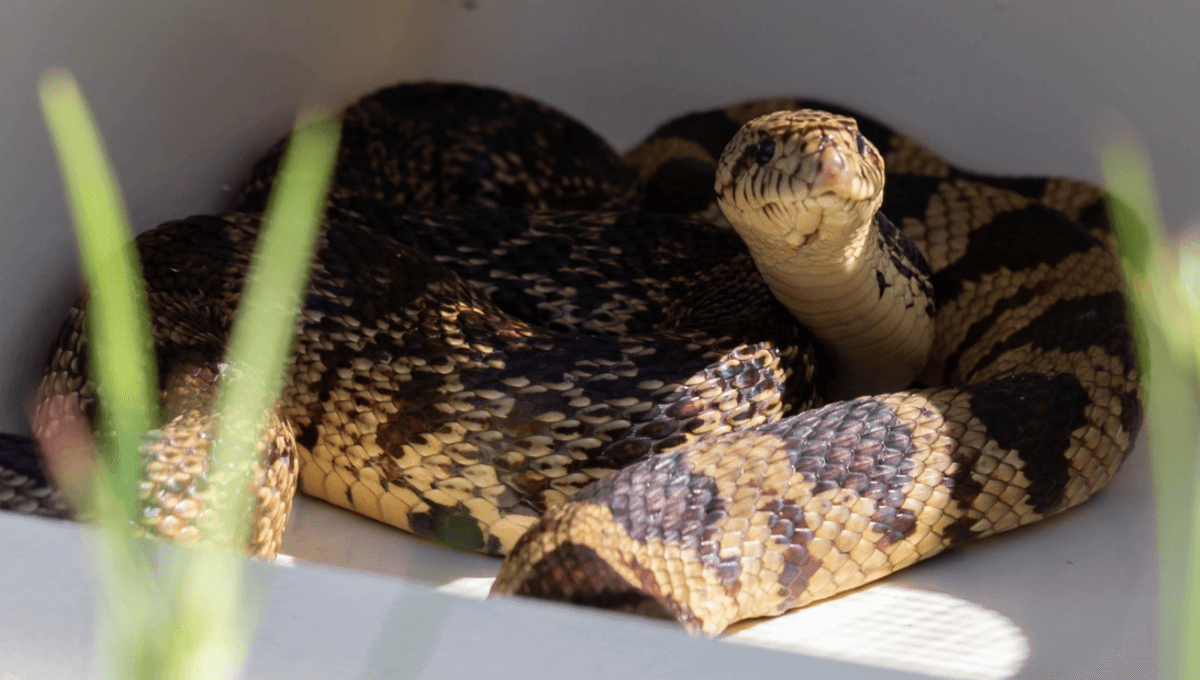
A very special clutch of snakelets have just arrived at Memphis Zoo, USA, born through a methodology that marks a world-first for reptile reproduction. They are Louisiana pinesnakes (Pituophis ruthveni), a species that’s threatened in the wild, but one for which we have crucial samples stored in a “frozen zoo”.
Cryopreservation, also called biobanking, is a burgeoning field of conservation that’s enabling scientists to conserve the building blocks needed to make some of Earth’s critically endangered animals. This can include sperm, eggs, and even skin cells – the latter being an approach that’s currently being tested out for Northern white rhinos.
The pinesnake babies in Memphis were created using frozen-thawed sperm that had been cryopreserved and then deployed through artificial insemination. Until now, biobanking has had a bigger focus on mammals, so the success seen for this endangered species is proof of concept that biobanking and assisted reproductive technologies (ART) have a place in reptile conservation.
The resulting three baby snakes have been genetically tested to confirm that it was indeed the donor male’s frozen sperm that sired them. Snake reproduction is a tricksy thing, as a female may store sperm so she can make babies when the time is right, or may even make babies all on her own through parthenogenesis.
“The Schwartz Lab at Auburn University is passionate about conservation and using genetics to understand how animal populations are impacted by threats in their environment,” said Dr Tonia Schwartz, Associate Professor in the Department of Biological Sciences in a statement. “We are proud to partner with Memphis Zoo on this project to use our genetic expertise to validate the successful fertilization using cryopreserved sperm. We see this success as a huge step forward to enable future efforts to improve the genetic health of this species and other threatened reptile species.”
A big day for reptile conservation, then – and one that’s coming not a moment too soon for the Louisiana pinesnake. As one of the rarest snakes in North America, it faces ongoing threats from habitat loss, making leaps in biobanking and assisted reproductive technologies like this a significant slither in the right direction.
“The emergence of these 3 hatchlings summed up 5 years of reproductive research and 30 years of Memphis Zoo’s use of cutting-edge science and dedication to save the Louisiana pinesnake from extinction,” added Beth Roberts, Senior Reproductive Scientist at Memphis Zoo. “This achievement brought us one step closer to routinely integrating assisted reproductive technology into reptile conservation to preserve genetics and save species.”
Source Link: World-First Snakelets Born At Memphis Zoo Using Cryopreserved Sperm